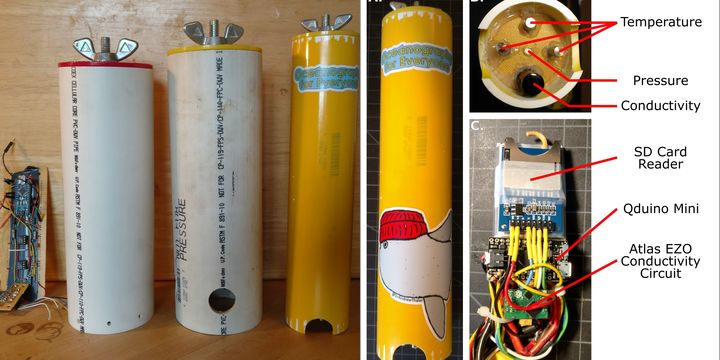The Problem
Conductivity, temperature, and depth (CTD). These three measurements allow scientists to unlock ocean patterns hidden beneath the sea's surface. The ocean is not uniform, it its filled with swirling eddies, temperature boundaries, layers of high and low salinity, changing densities, and other physical characteristics invisible to an observer floating upon its surface. To reveal these patterns oceanographers employ the CTD--an oceanographic instrument that, at its core, measures temperature, salinity, and depth for a water column. The CTD is the workhorse of oceanographic research. But CTDs are expensive, and that expense can is a barrier-to-entry for formal and informal researchers with limited budgets, scientists from developing nations, citizen oceanographers, and students of all levels interested in learning more about their local coasts and waterways.
Our Proposal
The OpenCTD is a low-cost, open-source CTD suitable for both educators and researchers. The platform is built using reasonably accessible parts and is powered by an Arduino-based microcontroller. Source codes and building instructions are freely available. The device, sufficiently accurate for scientific research, can be constructed for approximately $300, and is effective to 100 meters depth.
We Assume that...
Organizations that need these kinds of instruments are willing and able to assemble their own devices.
The scientific community will accept data produced by this equipment.
Constraints to Overcome
Currently, the biggest barrier to success is broad adoption of the OpenCTD. By building more units and conduction rigorous field testing to generate trust in the measurements and educate the consumer base about its existence.
Current Work
Assemble and test more CTDs. Integrate a real-time clock into the software. Integrate OpenCTD with Niskin3D to produce an open-source rosette.
Current Needs
We currently need volunteers to build and test their own OpenCTDs and provide feedback on material availability, ease of assembly, and field works.
